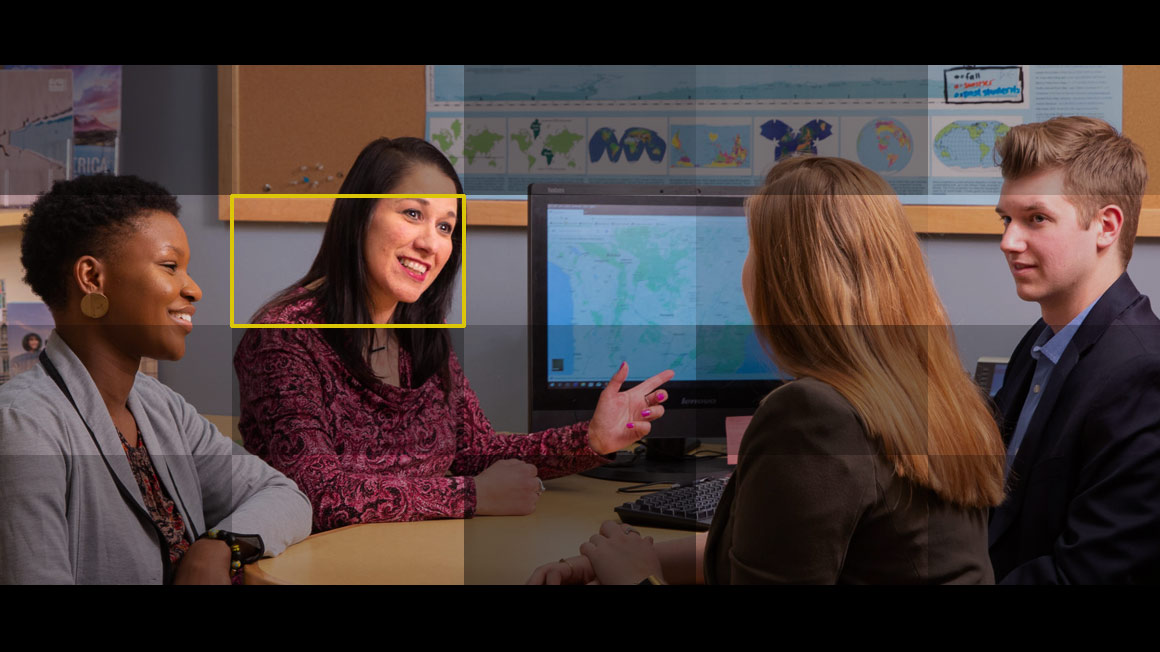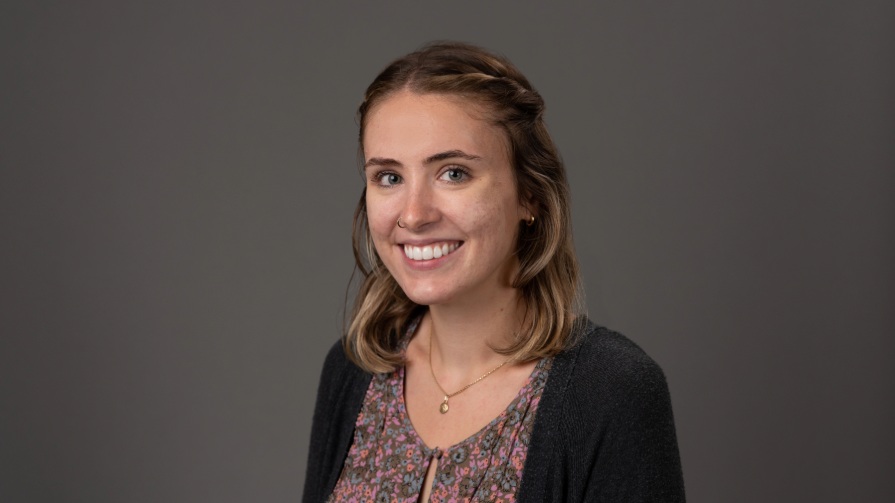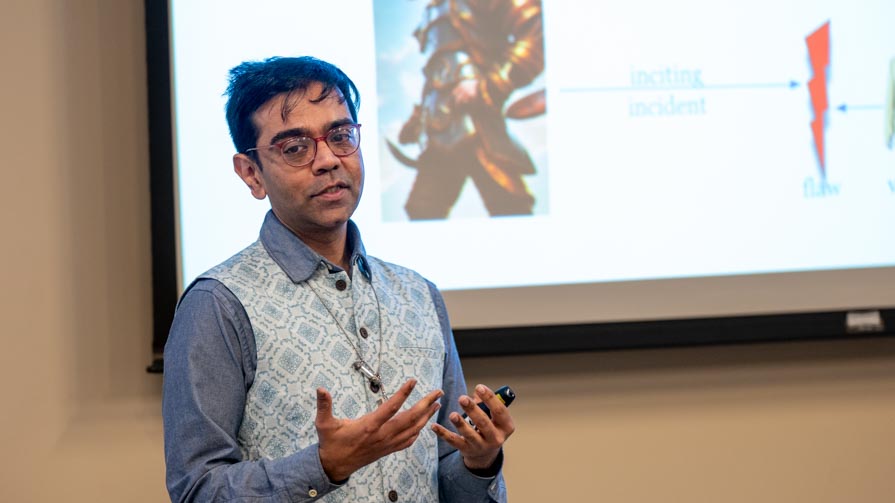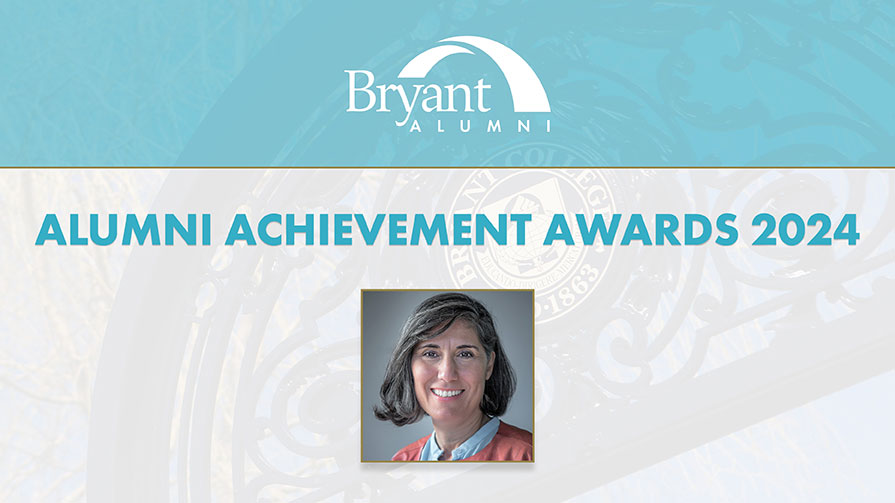Bryant faculty are known for embracing innovation in the classroom, and this semester was no different. When Bryant became a virtual campus in March, they rose to new challenges of teaching online.
We recently asked a cross-section of faculty to look back on the disruptions the pandemic posed to teaching and learning. Their responses emphasized the little things – and the big ones – that helped them engage with their students. Their answers also uniquely demonstrate what the pandemic left untouched: the Bryant faculty’s genuine dedication to their students.
Little things "put teaching on a whole new level. We became even more of a team."
Talking about things outside of class became even more important this semester, Ilisabeth Bornstein, J.D., M.P.P., Lecturer in Legal Studies, said. “We talked about how other classes and activities are going, the lousy weather, and who celebrated a birthday in quarantine. Students tune in when they feel like their presence matters.”
Dan McNally, Ph.D., Professor of Environmental Science, agreed, adding that “small talk" could lead to big things. "We talked about the virus, what the future holds. ... It helped me get to know students and personalize the learning process for them. I could see the effects of this by the number of questions asked to the high number of students logging in for class.”
“In some ways,” says McNally, these conversations “put teaching on a whole new level. We became even more of a team.”
From small talk to big things
Concern for their students’ day-to-day realities – which Bryant faculty consider important even in normal times – was essential this semester, and often led faculty to take extra steps to keep students engaged in their online courses.
“Follow-through was key. Picking up the phone and calling students or having them call each other became the norm.”
Mitigating the loneliness that can come with social distancing was important for Patricia Gomez, M.A., Senior Lecturer of Modern Language. “Our classes, while providing required coursework, also helped fill what might have been a solitary day,” she explained. To ensure students stay connected to their peers and to the course, “follow-through was key. Picking up the phone and calling students or having them call each other became the norm to keep everyone on track.”
Empathetic with her students' new challenges, Suhong Li, Ph.D., Department Chair and Professor of Information Systems and Analytics, tried to make adjustments where she could. “Because of students’ different time zones, disruptions at home, and even different learning styles (some people just can’t sit in front of a computer for very long), I tried to be understanding and flexible. I would ask them for feedback and adjust my teaching style accordingly.”
“The best teachers are also good and open learners.”
Because of their concern about meeting the needs of their students, some Bryant faculty members embraced the semester as a unique opportunity for professional growth, even if growth wasn’t easy.
Embracing opportunity for professional growth
“Online instruction is different. Anything different appears difficult at first,” said Michael Lynch, J.D., Professor of Accounting, explaining how trying new methods was important to helping his students start off slowly and finish strong.
“The best teachers are also good and open learners,” said Judith McDonnell, Ph.D., Professor of Sociology, elucidating that through her openness to feedback from students, she got better at online teaching. “For me it reinforced that in higher education, we are all in this together.”
“One thing I think we’ve all learned is that the bond between teachers and students is stronger than we thought.”
Added Bornstein, “I was in the middle of an ACUE course on best practices in teaching, and even though I am already familiar with most of the content, I found it helpful to be reminded of the various tools and approaches one can use that are also highly useful in an online setting.”
Appreciation and admiration for each other
Faculty and students alike have expressed appreciation and admiration for each other throughout the experience, highlighting the strength of their partnerships.
“I am familiar with the character of our students as I’ve been teaching at Bryant for 20 years, but the fortitude and resilience of these current students is incomparable,” says Chris Roethlein, Ph.D., Professor of Management. In his course GSCM 490, Empirical Applications in Global Supply Chain Management, which is a consulting course with real clients, “the students made the best of the situation, rolled up their sleeves and persevered to get tremendous results for their clients.”
“This pandemic has not only affirmed a level of connectedness but raised it to a higher and even more personal level.”
“Our students can adapt and succeed," Gomez said. "I ended all my classes telling my students how proud of them I was and that I was appreciative of ... their energy and patience. I’ve seen an incredible outpouring from students who want to connect on a different level."
Roethlein agreed. "This pandemic has not only affirmed a level of connectedness but raised it to a higher and even more personal level.”
“One thing I think we’ve all learned,” says Gomez, “is that the bond between teachers and students is stronger than we thought.”






